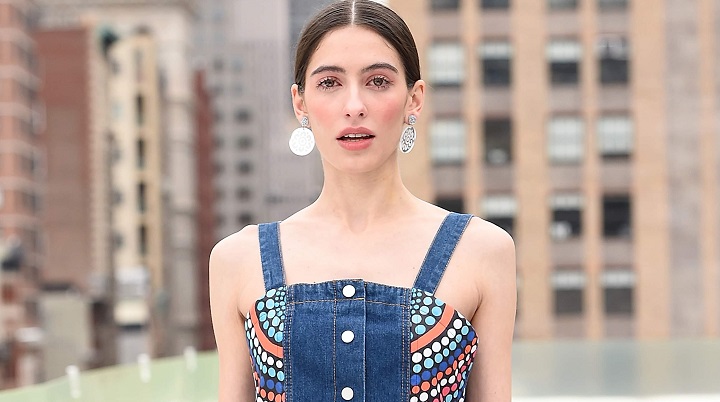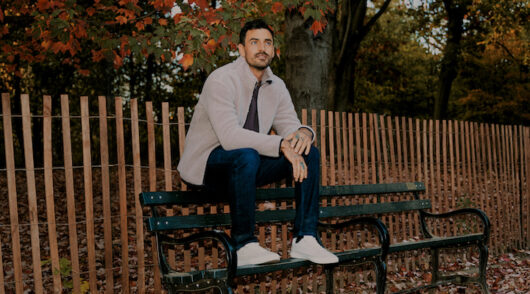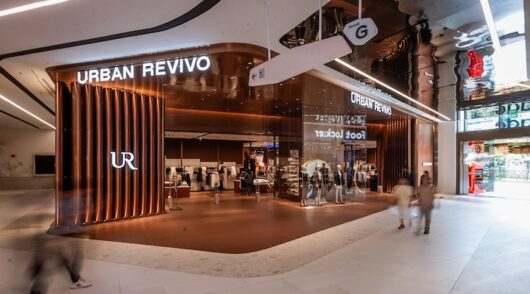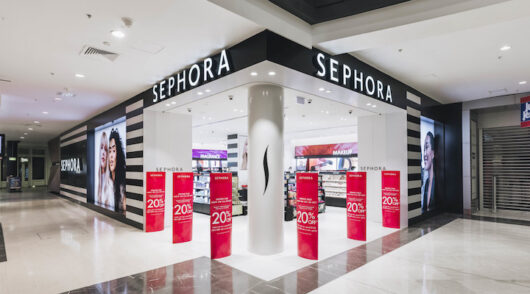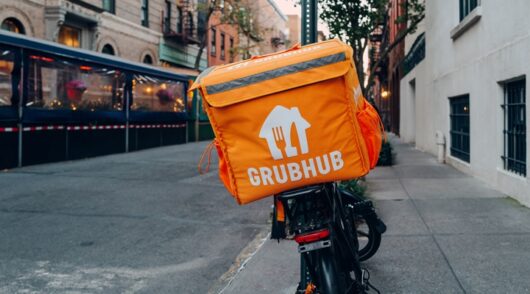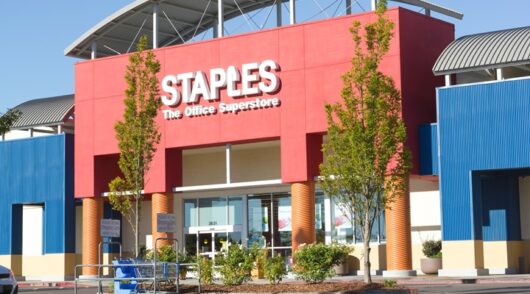When Deadly Denim founder Rebecca Barlow received an invitation last month to be part of Flying Solo’s emerging designer showcase at New York Fashion Week (NYFW), she saw it as the opportunity of a lifetime. “It is something I would never have dreamed of happening when I first started this as a hobby,” she told Inside Retail. Barlow launched Deadly Denim in 2018 while studying midwifery part-time in Perth. The brand sells upcycled denim jackets and other clothing featuring text
g textiles from Aboriginal and Torres Strait Islander artists.
But despite Deadly Denim’s growing profile, it is still a one-woman operation, and each one-of-a-kind piece is made by hand. So while the idea of seeing her work on a runway at NYFW was thrilling to Barlow, it also presented a logistical challenge.
How to produce an eight-piece collection and ship it overseas in just two weeks?
“My mum and her friend are my sewing saviours, when things get busy, they both help me out,” said Barlow. “When I had the two-week deadline for NYFW, my mum’s friend Aldeth was amazing and helped sew the pieces in time.”
Featuring designs from five First Nations artists – Glenda McCuloch, Mikayla King, Kiya Watt and Paige and Perelle Pryor – the ‘Our Country’ collection was shown on February 13 at one of the few in-person events at NYFW this year.
“[There was] a strong sustainability theme with each piece being created from recycled denim and all of the artwork in the designs reflecting the artist’s connection to country,” Barlow said.
Being able to represent Aboriginal culture on a global stage was the highlight of the whole experience for Barlow, a Ballardong, Whadjuk woman from the Nyungar nation living and working on country in Perth.
“I think it is a reminder of how fashion can be used as a vehicle, one we were able to use to showcase not only culture, but also the importance of sustainability in all levels of fashion,” she said.
“I hope it will show younger ones that if you keep working hard at something you love and work together, any dreams or goals are achievable.”
The showcase for emerging designers was one of the few in-person events at NYFW this year. Image: Matt Licari
Cultural shift
Barlow’s NYFW debut came off the back of several months of rapid growth. Like many Indigenous-owned fashion brands, Deadly Denim saw a surge in interest and demand following the Black Lives Matter protests last year.
“It felt uncomfortable to start with, having a huge amount of traction because it was ‘on trend’,” Barlow said.
“But I quickly noticed the positives to having this influx of people following and buying from Blak business, and it created an opportunity for an online platform to share and amplify [First Nations] voices on issues that were nothing new to Aboriginal and Torres Strait Islander people.”
Barlow noted the importance of groups such as Trading Blak, which not only promotes Aboriginal and Torres Strait Islander-owned businesses, but also fights against cultural exploitation.
Keeping up with demand
Managing Deadly Denim’s sudden growth has also been difficult on a practical level.
“It is so much more time-consuming and challenging to scale a fashion label that upcycles, as every piece is recycled and a one-off,” she explained.
“There is a lot of communication per customer…I may get a customer letting me know the colour, shape and size preference, which can be very problematic. I also provide the option [through] my online shop for people to send their own jacket to have customised.”
All of this has created “a bit of chaos” at Deadly Denim HQ, but Barlow, a lifelong op-shopper, wouldn’t change her commitment to using pre-loved denim in her products.
“With the fashion industry being the second highest polluting industry in the world, in Australia alone, more than 500,000 tonnes of textiles end up in landfill each year,” she said.
What’s next for Deadly Denim
With NYFW now in the rearview mirror, Barlow is focused on growing her brand presence through more retail partnerships and exclusive collaborations in Australia this year. Deadly Denim items are currently sold online, on Etsy and in-store through retail partners.
“With each piece being recycled and one-off, this can be a long process,” she noted about her expansion plans.
She also plans to deliver more Make Your Own Deadly Denim Jacket workshops in community and corporate settings across the country, and she’ll be participating in another fashion industry event later this year.
“I have been given an amazing opportunity to create a First Nations fashion event with the city of Fremantle in July,” she said.
Barlow will be working with Tia Semi, a local model, designer and blogger of Samoan heritage who is deaf and has an intellectual disability, cerebral palsy and epilepsy, to showcase Maori, Pacific Islander and Aboriginal designers and emerging designers, as well as cultural dance groups.

